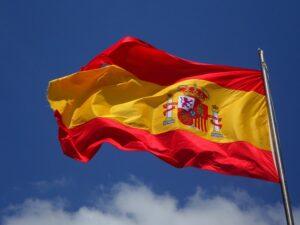Europe’s breadbasket could become a desert
Spain has become Europe’s leading producer of fruit and vegetables, but its agricultural successes are overshadowed by serious environmental problems: soil erosion, water shortages and sustainability challenges are increasingly visible. Behind the agricultural boom, in addition to technological progress and an export-oriented strategy, there are also millions of guest workers – typically from Eastern Europe and North Africa.
From store shelves to the continent’s fields
 Whether it’s tomatoes, olives or strawberries – Spanish products appear in the fruit and vegetable selection of almost any European supermarket. It’s no coincidence: Spain is the European Union’s largest fruit and vegetable producer, accounting for around a quarter of EU output. It is also the world’s leading exporter of olive oil and olives, and the EU’s largest producer of pork.
Whether it’s tomatoes, olives or strawberries – Spanish products appear in the fruit and vegetable selection of almost any European supermarket. It’s no coincidence: Spain is the European Union’s largest fruit and vegetable producer, accounting for around a quarter of EU output. It is also the world’s leading exporter of olive oil and olives, and the EU’s largest producer of pork.
However, there are serious downsides to this successful production model. Two-thirds of the country’s agricultural land is in arid or semi-arid climates, and the soil’s organic matter content, at just 14.9 grams per kilogram, is among the lowest in the EU. Up to 4 tonnes of soil could be lost per hectare per year, and by the end of the century, 80 percent of the country’s land could be at risk of desertification.
On the backs of guest workers
Spanish agriculture is notable not only for its production volume but also for its employment. In the last five years, more than 1.2 million new foreign workers have arrived – most of them from Morocco, Romania and Bulgaria – to work on the plantations, often in extreme heat. While the Spanish economy benefits from the labour of immigrants, the social and environmental costs of intensive production are becoming increasingly visible.
Importer and exporter
It is an interesting paradox that, despite its huge output, Spain is also one of the largest European importers of fresh fruits and vegetables from developing countries. The phenomenon is primarily due to the outsourcing of production: Spanish agricultural companies are relocating labor-intensive stages to North Africa to take advantage of cheaper labor and a less stringent regulatory environment. The country’s pig farming sector follows a similar logic when it buys cheap Ukrainian grain for animal feed.
Related news
Fashion, drones and sustainability – the new face of agriculture at the AgriTech InnoExpo event
🎧 Hallgasd a cikket: Lejátszás Szünet Folytatás Leállítás Nyelv: Auto…
Read more >ESG: the majority don’t ask for postponement, preparedness level is increasing
🎧 Hallgasd a cikket: Lejátszás Szünet Folytatás Leállítás Nyelv: Auto…
Read more >Related news
Nestlé to sell remaining ice-cream assets but commits to Froneri venture
🎧 Hallgasd a cikket: Lejátszás Szünet Folytatás Leállítás Nyelv: Auto…
Read more >Lidl guarantees fairer prices for cocoa farmers
🎧 Hallgasd a cikket: Lejátszás Szünet Folytatás Leállítás Nyelv: Auto…
Read more >







